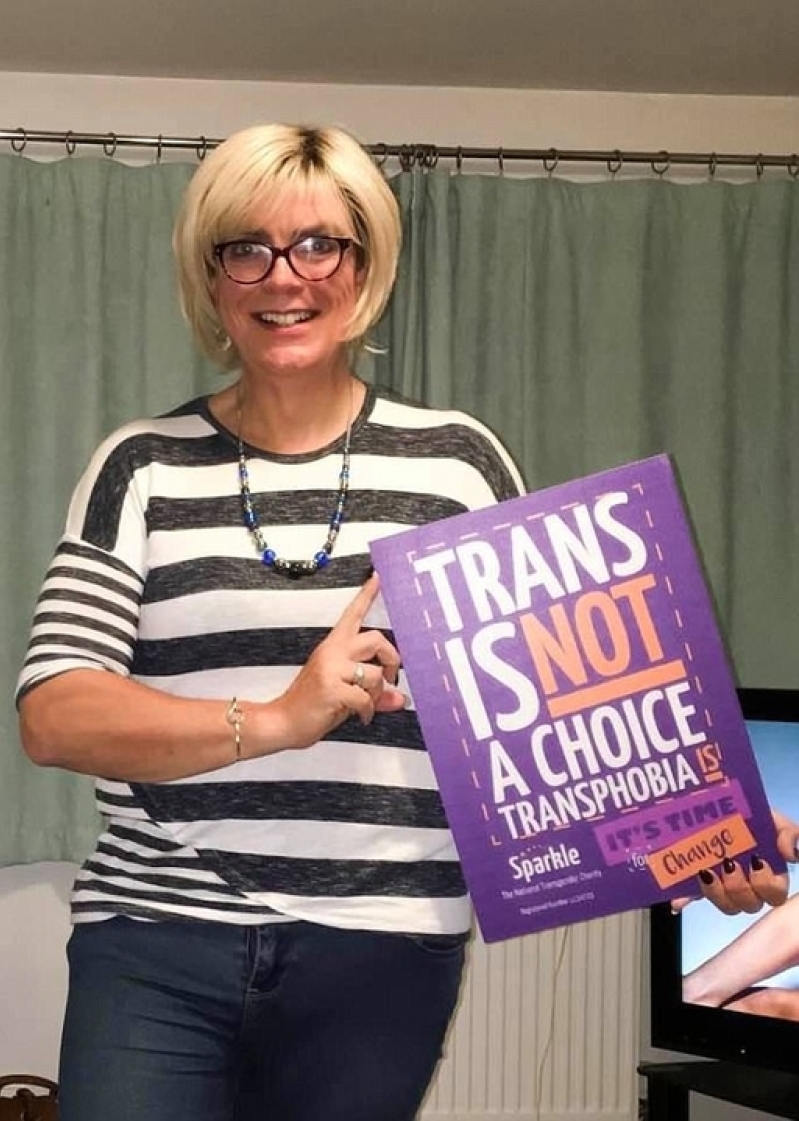
A Christian printer has been accused of discrimination after refusing to produce business cards for a transgender "diversity consultant" because he didn't want to promote a cause that could be used to "marginalize" other believers.
According to the Sunday Times, Nigel Williams of Southampton, Hampshire refused to print materials for SEE Change Happen, an organization claiming to "promote diversity, equality and inclusion," because it would "make pressure worse" for Christians whom he believes are being forced to accept the LGBTQ way of life.
In an email sent to owner Joanne Lockwood, a transgender woman, Williams wrote:
"The new model of diversity is used (or misused) to marginalize (or indeed discriminate against) Christians in their workplaces and other parts of society if they do not subscribe to it. Although I'm quite sure you have no intention of marginalizing Christians, it would weigh heavily upon me if through my own work I was to make pressure worse for fellow Christians."
Lockwood, who has been living as a transgender woman since January, told the outlet she was "gobsmacked" by the response.
"I was not expecting a lecture," Lockwood said. "I disbelieved this could happen in 2017. I have been distraught and cried and my wife consoled me. I think a point of principle is at stake. He wanted to make a point to me deliberately for his own motives. I have been the victim of some discrimination."
Amid backlash, Williams has received the support of the Christian Institute, which called the controversy both "chilling and unnecessary."
"For years we've warned of growing hostility towards people with mainstream Christian views," the organization said. "The terms 'equality,' 'diversity' and 'tolerance' have been twisted out of all recognition in an attempt to marginalize, shame and punish Christian people."
It added, "Nigel Williams made it crystal clear that he would be prepared to do work for Jo Lockwood. Indeed, his email said: 'I am very happy to print for you.' However, he was not prepared to do work for a business that actively promoted a cause which might impact negatively on those with a Christian faith. It is a fundamental tenet of free speech and freedom of belief that people should not be forced to help promote causes flatly contrary to their own deeply held views."
Over the past several years, numerous Christian business owners have been sued for discrimination over their refusal to provide services to organizations or individuals whose practices they see as violating their religious beliefs.
Earlier this month, United States Attorney Gen. Jeff Sessions issued a guidance on religious liberty that instructs all federal agencies to protect individuals and organizations' rights "to perform or abstain from performing certain physical acts in accordance with one's beliefs."
"Except in the narrowest of circumstances, no one should be forced to choose between living out his or her faith and complying with the law," the attorney general wrote. "To the greatest extent practicable and permitted by law, religious observance and practice should be reasonably accommodated in all government action, including employment, contracting and programming."
"Our freedom as citizens has always been inextricably linked with our religious freedom as a people," Sessions said. "It has protected both the freedom to worship and the freedom not to believe. Every American has a right to believe, worship, and exercise their faith. The protections for this right, enshrined in our Constitution and laws, serve to declare and protect this important part of our heritage."
This December, the U.S. Supreme Court will hear the case of a Colorado baker who was punished for refusing to serve a same-sex wedding. When asked about the case, Sessions told the Christian Broadcasting Network that "that too often we have ignored what the Constitution actually says."
"It says Congress shall make no law respecting the establishment of a religion nor prohibiting the free exercise thereof," he said. "So the question is, the cake baker has more than just a personal view here. He has a religious view and he feels that he is not being able to freely exercise his religion by being required to participate in a ceremony in some fashion that he does not believe in."
The Religious Freedom Restoration Act of 1993, he said, states that the government shouldn't constrict an individual's religious belief "without a compelling reason to do so."
"So we think that statute has been ignored too often and not respected sufficiently," he said.







